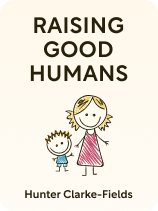

This article is an excerpt from the Shortform book guide to "Raising Good Humans" by Hunter Clark-Fields. Shortform has the world's best summaries and analyses of books you should be reading.
Like this article? Sign up for a free trial here.
What is mindful parenting? How can you stay calm when your kids are pushing your buttons?
According to Hunter Clarke-Fields, mindful parenting starts with you. You need to pay better attention to what’s going on internally before you can focus on your relationship with your kids.
Find out how to take better care of yourself so you can form a healthy relationship with your children.
Use Mindfulness to Self-Regulate
When you know what sets you off and how to take care of yourself, it becomes easier to make intentional parenting decisions that strengthen connection instead of impulsive, or reactive, decisions that harm connection. It’s harder to navigate conflict with kids when you’re angry, frustrated, stressed, or overstimulated—in short, when you have an elevated stress response. Moments of high stress trigger your brain to go into fight or flight mode rather than problem-solving mode. This means when you’re stressed, you’re more likely to react impulsively instead of intentionally.
Clarke-Fields encourages mindful parenting as a way to decompress. But what is mindful parenting? Mindful parenting is a compassionate, awareness-based approach that helps you focus on being present and emotionally available for your children. Clarke-Fields argues that practicing mindful parenting can fundamentally change how you interact with your kids.
Clarke-Fields encourages parents to cultivate a personal mindfulness practice as a tool to help regulate their emotions in moments of high stress. She argues that a mindfulness practice will help reduce your reactivity as you begin to build a habit of staying present. Over time, you’ll become more aware of your thoughts and feelings.
Clarke-Fields offers three ways to weave mindfulness into your daily life:
1. Start a meditation routine. She recommends dedicating some time each day (5-10 minutes) to a formal meditation practice.
2. Practice mindfulness during everyday tasks. Clarke-Fields recommends picking an ordinary task like brushing your teeth or washing dishes. Try to concentrate fully on what you’re doing—the sensations, motions—and nothing else.
3. Pay attention to your body. Throughout the day, take time to pause and notice any tension or discomfort in your body. When you have intense emotions, where do they sit in your body? For example, do you feel anxiety in your throat or your belly? Does anger stay in your jaw? Pay attention to what happens in your body as feelings arise and dissipate.
Become Aware of Your Triggers
According to Clarke-Fields, a regular mindfulness practice will not only help you become less reactive, but it will also help you understand why you respond so strongly in certain situations. Using mindfulness to increase self-awareness will help you better identify patterns and root issues that may be fueling your stress and making parenting harder.
Clarke-Fields recommends supplementing your mindfulness practice with reflective writing exercises. She suggests starting by reflecting on how you were raised. For example, growing up, how was love expressed? What about anger? Frustration? Sadness? How was behavior punished or rewarded? Reflecting on these early childhood experiences will help identify patterns of behavior you’ve modeled after your parents or adopted as a coping strategy. Then you can consider what you learned from childhood that you want to take with you as a parent, and what you want to let go of.
Clarke-Fields also recommends keeping a detailed log of your triggers. She explains that by documenting who and what triggers you, along with the underlying feelings and external factors like fatigue or hunger, you can identify patterns in your behavior. Tracking provides a more objective perspective on your triggers, making it easier to recognize them and then consider alternative responses.
The author adds that while it’s helpful to be more aware of your triggers, you should also reduce overall stress in your life. Stress is a significant factor in reactivity. By managing your stress effectively, she argues, you’re better equipped to parent calmly and thoughtfully. According to Clarke-Fields, you can reduce stress by exercising, getting enough sleep, and spending time with loved ones. She emphasizes that self-care is not selfish but a necessary component of being a well-regulated parent who can meet their child’s (and their own) needs with patience and understanding.
Accept That Difficult Emotions Are a Part of Life
Clarke-Fields says that developing a mindfulness practice and increasing your self-awareness can help minimize your stress and emotional outbursts but emphasizes that difficult emotions are natural—for parents and children—and you shouldn’t feel any shame for having them. The problem is that, too often, we lack the tools to deal with these difficult feelings in a healthy way. Most people tend to either suppress their emotions entirely and ignore them, or they become overwhelmed by them.
Clarke-Fields offers a third approach: mindful acceptance. This “middle path” involves neither pushing away nor becoming consumed by difficult emotions. Instead, it means taking time to acknowledge and fully experience the physical sensations that arise with your feelings, then allowing them to pass naturally.
Clarke-Fields suggests the RAIN meditation as a step-by-step approach for handling intense feelings in these moments:
- Recognize the strong emotion you’re experiencing and describe it using language that separates you from what you’re feeling. For example, “I am feeling scared” rather than “I am scared.”
- Allow yourself to feel whatever you’re feeling. Avoid judgment or trying to move past the feeling too quickly.
- Investigate the feeling. Be curious. Notice where the feeling shows up in your body. What thoughts accompany the feeling? Are those thoughts accurate or helpful?
- Nurture the feeling. Ask yourself what you need. For example, if you are feeling scared, the scared part of you may need reassurance that you are safe. You could put your hand over your heart and speak kind words to yourself like “This feeling of fear is temporary. I am safe right now.”
Clarke-Fields emphasizes that using this approach to manage difficult emotions takes practice, but the more you do it, the less control your feelings will have over your life and your decision-making. As your ability to self-regulate and your self-awareness increase, it’ll become easier to make intentional decisions that strengthen your relationship with your child.

———End of Preview———
Like what you just read? Read the rest of the world's best book summary and analysis of Hunter Clark-Fields's "Raising Good Humans" at Shortform.
Here's what you'll find in our full Raising Good Humans summary:
- How to use mindfulness to manage emotions—both yours and your child's
- Four steps to resolving conflicts with your child
- Practical strategies for creating a simple, low-stress environment at home






